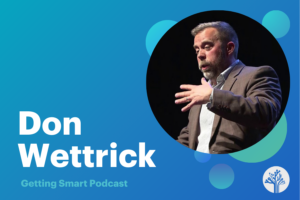Learning Engineering: Merging Science and Data to Design Powerful Learning Experiences

By Shelly Blake-Plock
Recent years have been marked by an acceleration in the development of technologies that support the way people learn at school, on the job, and as a part of lifelong pursuits.
The rise of these technologies in the learning space is part of the broader digital transformation that is making an impact on all areas of work and play. Behind all of this digital transformation lies a significant engineering aspect. While these learning technologies are supported by a portfolio of existing and planned technology standards, the discipline and profession of the Learning Engineer itself has yet to coalesce into a well-defined domain within the field of engineering.
In December of 2017, motivated by the need to support the development of Learning Engineering as a profession, the IEEE-SA Standards Board ICCom recommended the creation of a new 24-month Industry Connections activity to provide definition to and support for the burgeoning field of Learning Engineering. The work was sponsored by the IEEE Learning Technology Standards Committee under the leadership of Avron Barr and was supported by Robby Robson, member of the IEEE-SA Standards Board. The recommendation was approved by the IEEE-SA Standards Board, and ICICLE — the IEEE IC Industry Consortium on Learning Engineering — was born.
“A Learning Engineer is someone who draws from evidence-based information about human development — including learning — and seeks to apply these results at scale, within contexts, to create affordable, reliable, data-rich learning environments,” says Bror Saxberg, vice president of learning science at the Chan Zuckerberg Initiative and member of ICICLE’s advisory board.
Less than six weeks after its formation, ICICLE has fifty participating organizations including Boeing, Houghton Mifflin Harcourt, UL, and Allegiant; academic institutions including the Simon Initiative at Carnegie Mellon University and the Lynch School of Education at Boston College; government organizations including the Advanced Distributed Learning Initiative at the U.S. Department of Defense, and a whole host of learning ecosystem participants including ACT, EDUCAUSE, and the IEEE Education Society.
“By stimulating a vocation that combines learning and engineering we can expect more thoughtful design, implementation, and investment in learning technologies that serve learners and the greater community,” says Michael Jay, president of Educational Systemics, Inc. and chair of ICICLE’s special interest group (SIG) for Competency Frameworks and Certification.
The new industry consortium plans to hold an inaugural International Conference on Learning Engineering and publish the Proceedings of the conference along with a white paper on the burgeoning profession and academic discipline.
“We will make major inroads into how we use interactions data gathered in rich learning experiences to create a clearer picture of the learner that can be used to inform their learning and improve how we support their learning,” says Jay.
The technologies with which Learning Engineers engage vary widely and include learning management and learning content management systems, mobile e-learning applications, course authoring tools, MOOCs, digital simulations and game environments, virtual and augmented reality, micro-credentials, learning record stores and analytics dashboards, video and other streaming content, and new applications in wearable and Internet of Things technologies.
“The industry is maturing in a number of ways, including in the development of articulated standards for interoperability of learning and assessment content, results, and para-data; better understanding and measurement of efficacy; and established communities of engineers, academics, and practitioners diligently working toward solutions,” says Michelle Barrett, vice president of research technology, data science, and analytics at ACT.
Megan Bowe, chair of ICICLE’s Technical Committee, agrees: “There has been remarkable progress in the learning technology standards space over the last five years. This progress has spurred the market to use learning technology in different ways than they traditionally have,” she says. “This Learning Engineering project targets the special skills which are required to address those market changes. Having a definition and a skill set for a Learning Engineer opens the space for rapid growth.”
Paul Jesukiewicz, a member of ICICLE’s advisory board, says that Learning Engineering has played a role in most of his professional career. “With an undergraduate and graduate degree in Engineering, I started my career in the government developing computer based training for the Navy,” says Jesukiewicz. “I later ran the Advanced Distributed Learning Initiative for the U.S. Department of Defense and then became director of the USALearning Knowledge Portal for the U.S. Office of Personnel Management (OPM) where I have enjoyed managing teams of Learning Scientists, Instructional Designers, Software Engineers, and Data Scientists.”
In fact, the term “Learning Engineer” dates back to at least 1966 when it was used by Herbert Simon, professor of computer science and psychology at the Carnegie Institute of Technology to describe a class of professionals who would be “experts in designing learning experiences.” As a consortium seeking to define and to develop the profession of Learning Engineering, ICICLE continues to support those pushing the envelope in the design of learning experiences through the application of technology and learning science.
“Today Learning Engineering is exciting as ever with the advancements in learning analytics, big data, cloud technologies, and personalized learning,” says Jesukiewicz.
According to Ken Koedinger, Professor of Human-Computer Interaction at Carnegie Mellon University and chair of ICICLE’s SIG on the Learning Engineering Academic Curriculum: “In ten years, learning engineering will be a core job in educational technology companies, K-12 schools, colleges and universities.”
Interested in getting involved?
ICICLE has established special interest groups (SIGs) to pursue projects in AI and adaptive learning technologies, xAPI and learning analytics, competency frameworks, learning data standards, learning data governance, and learning experience (LX) design, as well as teams to explore how Learning Engineering will grow both in industry and in academia. Information about ICICLE’s projects can be found at https://www.ieeeicicle.org/ along with information about participation — which is free and open to the public. Additionally, the consortium will be supporting the development of open source repositories, libraries, and test beds critical to an open approach towards the ongoing development of the field.
“Fairness, transparency, and proven efficacy for individuals will be demanded by learners and teachers as we use these advancements and technologies to create novel, personalized, and adaptive learning experiences,” says Michelle Barrett who chairs ICICLE’s Artificial Intelligence (AI) and Adaptive Technologies SIG. “Sustained growth will require a cadre of engineers well-versed in the theories, contexts, and technologies most meaningful to effective teaching and learning.”
Jodi Lis, learning and technology advisor at Jhpiego — an international non-profit health organization affiliated with The Johns Hopkins University — and chair of ICICLE’s Outreach Committee, puts it this way: “A Learning Engineer has knowledge of how people learn, and recognizes that there are many factors in learning. A Learning Engineer analyzes data from learning, looks for patterns, notices areas that may affect learning, and informs the design to improve the learning. A Learning Engineer is familiar with technologies to design, implement, disseminate, and analyze learning. A Learning Engineer is not just one thing.”
Bror Saxberg sums it up: “As with any engineering discipline, at their best such professionals are doing great design work to sort through the priorities for the best solution possible within the practical constraints of the situation at hand. But Learning Engineering is grounded in evidence about how the world of human development and learning actually works.”
For more, see:
- “Learning Engineering” Making Its Way in the World
- Building the Future: Designing with Purpose
- Designing Pilot Programs for Schools and Districts:
Shelly Blake-Plock is CEO at Yet Analytics and Chair of the IEEE IC Industry Consortium on Learning Engineering. Connect with him on Twitter: @blakeplock
Stay in-the-know with all things EdTech and innovations in learning by signing up to receive the weekly Smart Update.






0 Comments
Leave a Comment
Your email address will not be published. All fields are required.